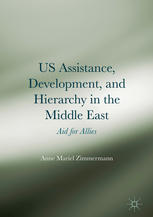

Most ebook files are in PDF format, so you can easily read them using various software such as Foxit Reader or directly on the Google Chrome browser.
Some ebook files are released by publishers in other formats such as .awz, .mobi, .epub, .fb2, etc. You may need to install specific software to read these formats on mobile/PC, such as Calibre.
Please read the tutorial at this link: https://ebookbell.com/faq
We offer FREE conversion to the popular formats you request; however, this may take some time. Therefore, right after payment, please email us, and we will try to provide the service as quickly as possible.
For some exceptional file formats or broken links (if any), please refrain from opening any disputes. Instead, email us first, and we will try to assist within a maximum of 6 hours.
EbookBell Team

5.0
110 reviewsWhat does US aid “buy” in the Middle East? Drawing on extensive primary source research, this book examines the role and consequences of US aid to three countries in the Middle East. The author argues that the political survival strategies of incumbent leaders in Egypt, Israel, and Jordan shaped not only the type of aid that these countries received from the US, but also its developmental and geopolitical impact. Leaders who relied heavily on distributing selective benefits to their ruling coalitions were more likely to receive forms of US aid that complemented their distributive political economies and undermined the state’s developmental capacity, which simultaneously rendered them more dependent on US resources, and more likely to cede fragments of their sovereignty to their major donor. Non-distributive leaders, however, could reap the full benefits of highly discretionary and technologically sophisticated aid, incorporating it into developmental policies that rendered them progressively less dependent on Washington—and better able to say “no” when it was in their best interest.